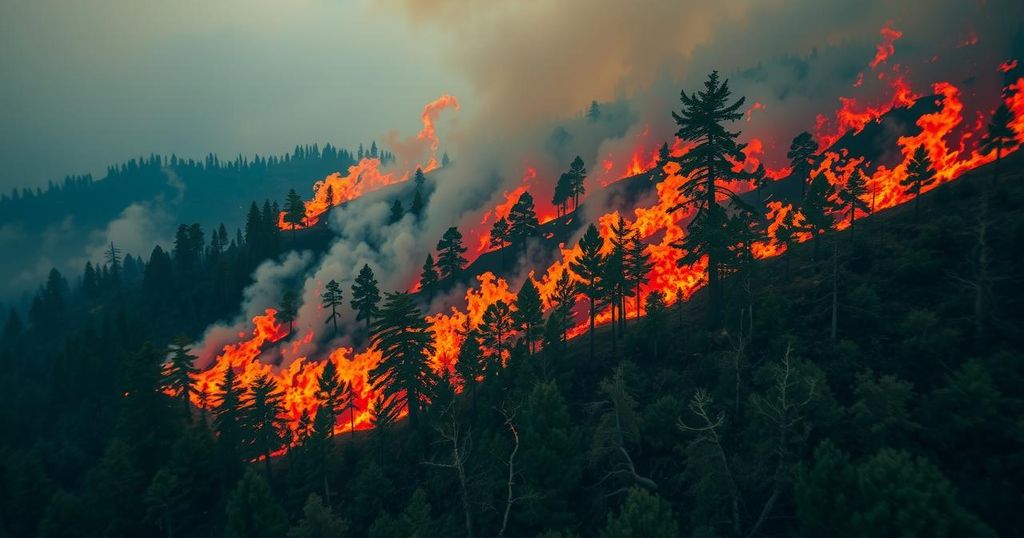The Adverse Effects of Climate Change on Forest Fires and Public Health
Recent studies indicate that climate change has led to a 16% increase in forest fire areas burned from 2003 to 2019, significantly impacting public health due to smog and air pollution. The research highlights that while the total burned area has decreased due to land use changes, the intensity and frequency of fires have escalated, contributing to rising death tolls attributed to fire-related air pollution, particularly in developed regions.
Climate change has significantly intensified the frequency and severity of forest fires, leading to serious environmental, ecological, and public health repercussions. A recent study published in the esteemed journal Nature Climate Change, involving researchers from the Federal Institute of Technology in Zurich, reveals a staggering 16% increase in the area burned by forest fires worldwide between 2003 and 2019, attributed specifically to climate change. Regions such as Australia, South America, western North America, and Siberia have been particularly hard-hit. While the total burned area globally decreased by 19% in this period, the reduction is largely due to the conversion of forested land into agricultural and urban spaces, resulting in fewer areas available to burn. Nonetheless, the study highlights that where fires do occur, the impacts of global warming are pronounced, rendering forests more vulnerable and exacerbating the intensity of the fires themselves. Dr. Chantelle Burton from the UK Met Office Hadley Centre stated, “Our study shows that once fires occur, the impact of climate change becomes increasingly significant with drier and warmer weather conditions.” In a complementary study, led by Chae Yeon Park from the National Institute of Industrial Science and Technology in Japan, researchers examined the correlation between forest fires and public health. The data revealed that fire-related air pollution has increased dramatically, with annual deaths attributable to such pollution rising from approximately 46,400 in the 1960s to nearly 98,750 in the 2010s globally. Based on climate change scenarios from the earlier study, more than 12,500 deaths annually from fire-related air pollution in the 2010s were linked directly to climate change, a stark increase from about 670 deaths per year in the 1960s. Regions such as South America, Australia, and Europe were identified as being particularly susceptible. Dr. Park emphasized the growing threat to public health by stating, “Our research makes it clear that climate change increasingly poses a threat to public health, as smoke is also affecting densely populated areas more frequently.” Despite noting that certain regions, like South Asia, have experienced a climate-induced rise in humidity that has mitigated the number of fire-related deaths, the overarching trend indicates a clear public health crisis driven by climate change and its impact on forest fire incidents. The conclusion drawn from this analysis underscores the urgent need for global recognition and action regarding the intersection of climate change, forest fires, and public health.
The increasing frequency and severity of forest fires have been closely linked to climate change, characterized by rising temperatures and changes in weather patterns such as droughts. Studies indicate that these changes not only result in more extensive areas being burned but also contribute to significant health risks associated with air pollution from smoke. As populations are densely concentrated in regions typically affected by such pollution, the implications for public health are dire, necessitating immediate attention and proactive measures.
The studies discussed in this article present alarming evidence of the intertwined challenges posed by climate change, forest fires, and public health. The significant increase in the incidence of fires, exacerbated by warmer and drier conditions, poses a direct threat not only to the environment but also to human health. With millions of lives at stake due to air pollution from these fires, there is an urgent need for coordinated global action to mitigate climate change and protect vulnerable populations.
Original Source: www.swissinfo.ch




Post Comment